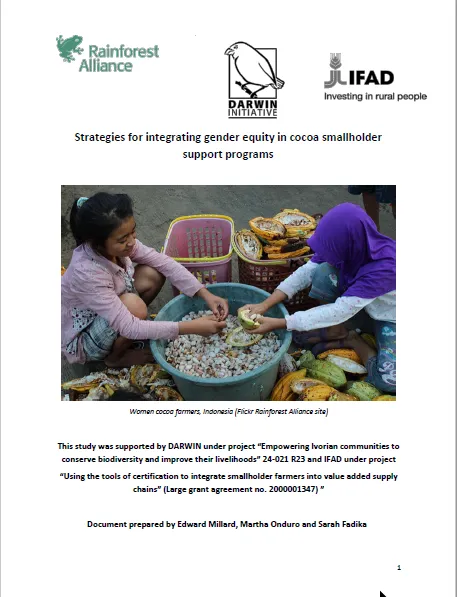Mitigating Gender Inequity in the Cocoa Sector
Women cocoa farmers throughout the developing world face a host of barriers to achieving their potential. Such challenges include restrictive cultural practices, discriminatory laws, and a lack of access to land, education, as well as credit and markets. But research shows that empowering women in cocoa-growing communities leads to positive impacts on the well-being of women and children as well as on crop productivity.
A 2015 World Bank report on agricultural productivity in East Africa, for example, estimates that closing the gender gap in the agricultural sector would result in significant gross gains to Gross Domestic Product (GDP) in Malawi, Tanzania, and Uganda; it would also reduce poverty and improve food security.
This report outlines the Rainforest Alliance’s approach to mitigate gender inequality in the cocoa sector. It describes current strategies being adopted in the cocoa supply chain by the Rainforest Alliance and draws on lessons to improve positive impact on women. Examples are given of work in the three IFAD cocoa project sites.
